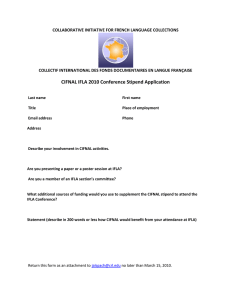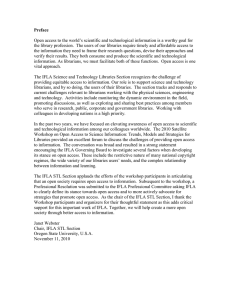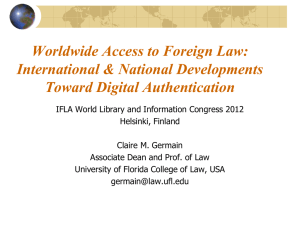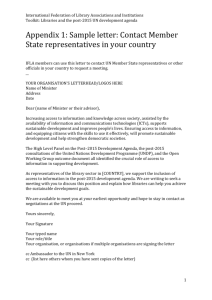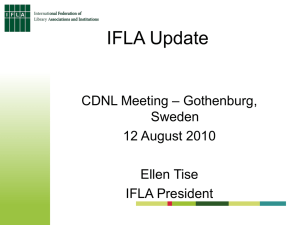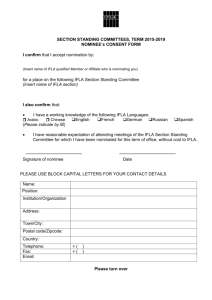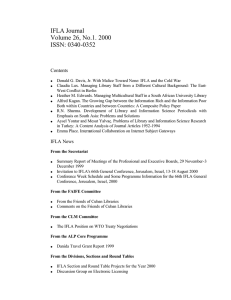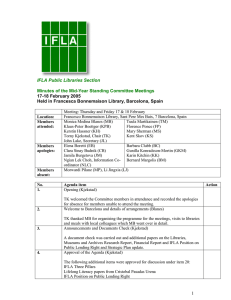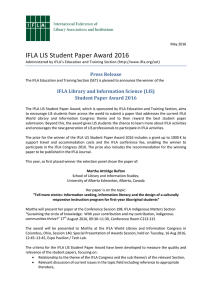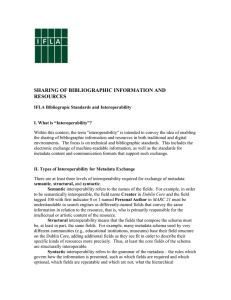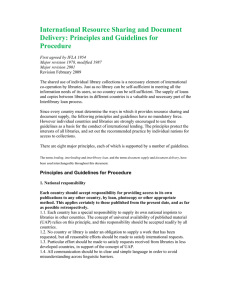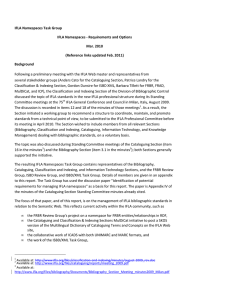Document 12993736
advertisement
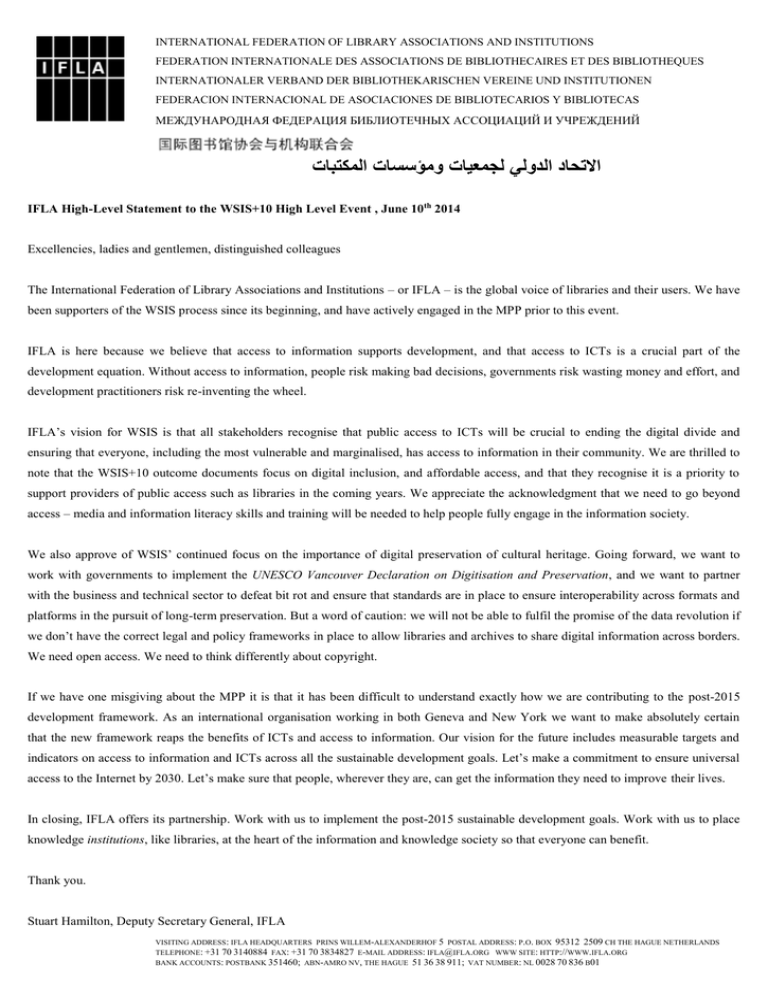
INTERNATIONAL FEDERATION OF LIBRARY ASSOCIATIONS AND INSTITUTIONS FEDERATION INTERNATIONALE DES ASSOCIATIONS DE BIBLIOTHECAIRES ET DES BIBLIOTHEQUES INTERNATIONALER VERBAND DER BIBLIOTHEKARISCHEN VEREINE UND INSTITUTIONEN FEDERACION INTERNACIONAL DE ASOCIACIONES DE BIBLIOTECARIOS Y BIBLIOTECAS МЕЖДУНАРОДНАЯ ФЕДЕРАЦИЯ БИБЛИОТЕЧНЫХ АССОЦИАЦИЙ И УЧРЕЖДЕНИЙ االتحاد الدولي لجمعيات ومؤسسات المكتبات IFLA High-Level Statement to the WSIS+10 High Level Event , June 10th 2014 Excellencies, ladies and gentlemen, distinguished colleagues The International Federation of Library Associations and Institutions – or IFLA – is the global voice of libraries and their users. We have been supporters of the WSIS process since its beginning, and have actively engaged in the MPP prior to this event. IFLA is here because we believe that access to information supports development, and that access to ICTs is a crucial part of the development equation. Without access to information, people risk making bad decisions, governments risk wasting money and effort, and development practitioners risk re-inventing the wheel. IFLA’s vision for WSIS is that all stakeholders recognise that public access to ICTs will be crucial to ending the digital divide and ensuring that everyone, including the most vulnerable and marginalised, has access to information in their community. We are thrilled to note that the WSIS+10 outcome documents focus on digital inclusion, and affordable access, and that they recognise it is a priority to support providers of public access such as libraries in the coming years. We appreciate the acknowledgment that we need to go beyond access – media and information literacy skills and training will be needed to help people fully engage in the information society. We also approve of WSIS’ continued focus on the importance of digital preservation of cultural heritage. Going forward, we want to work with governments to implement the UNESCO Vancouver Declaration on Digitisation and Preservation, and we want to partner with the business and technical sector to defeat bit rot and ensure that standards are in place to ensure interoperability across formats and platforms in the pursuit of long-term preservation. But a word of caution: we will not be able to fulfil the promise of the data revolution if we don’t have the correct legal and policy frameworks in place to allow libraries and archives to share digital information across borders. We need open access. We need to think differently about copyright. If we have one misgiving about the MPP it is that it has been difficult to understand exactly how we are contributing to the post-2015 development framework. As an international organisation working in both Geneva and New York we want to make absolutely certain that the new framework reaps the benefits of ICTs and access to information. Our vision for the future includes measurable targets and indicators on access to information and ICTs across all the sustainable development goals. Let’s make a commitment to ensure universal access to the Internet by 2030. Let’s make sure that people, wherever they are, can get the information they need to improve their lives. In closing, IFLA offers its partnership. Work with us to implement the post-2015 sustainable development goals. Work with us to place knowledge institutions, like libraries, at the heart of the information and knowledge society so that everyone can benefit. Thank you. Stuart Hamilton, Deputy Secretary General, IFLA VISITING ADDRESS: IFLA HEADQUARTERS PRINS WILLEM-ALEXANDERHOF 5 POSTAL ADDRESS: P.O. BOX 95312 2509 CH THE HAGUE NETHERLANDS TELEPHONE: +31 70 3140884 FAX: +31 70 3834827 E-MAIL ADDRESS: IFLA@IFLA.ORG WWW SITE: HTTP://WWW.IFLA.ORG BANK ACCOUNTS: POSTBANK 351460; ABN-AMRO NV, THE HAGUE 51 36 38 911; VAT NUMBER: NL 0028 70 836 B01
